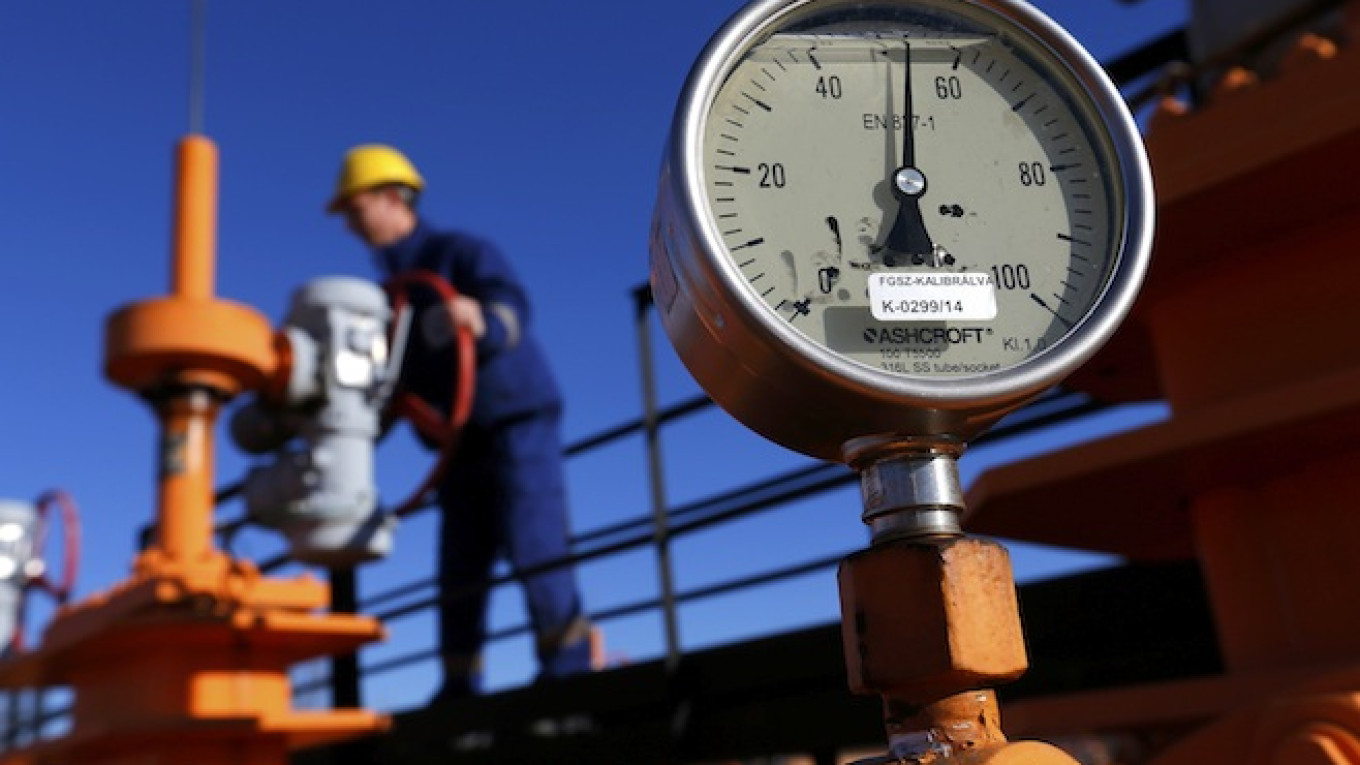Ukraine plans to cover up to 60 percent of its gas import needs this year from Europe, leaving its once-dominant supplier Russia delivering the rest, the head of the state energy firm said Thursday.
In an interview, Naftogaz chief executive Andriy Kobolyev said supplies from Russia could drop in a few years to just a third of total Ukrainian imports as Ukraine takes advantage of its ability to import more from the liberalized European markets.
Those figures would have been impossible to imagine a few years ago, when Russia was covering all of Ukraine's gas imports: over 50 billion cubic meters out of a total consumption of over 70 bcm.
But several pricing conflicts, the overthrow of Kiev's pro-Russian president, and Moscow's annexation of Crimea and support for pro-Russian rebels have destroyed bilateral relations.
Ukraine's battered economy had to slash energy consumption and some enterprises switched to coal as Russia sold its gas to Ukraine at prices much higher than those in Europe.
As a result, Ukraine imported only 21 bcm last year, of which 5 bcm came from Europe.
This year, it will cut imports to around 20 bcm, of which only 40 percent will come from Russia and 60 percent will come from European suppliers such as RWE, GDF and Statoil.
Ukraine's imports from Europe angered Russia's Gazprom , which said its European buyers were reselling Russian gas to Ukraine in breach of existing contracts. But Ukraine argues that European gas markets are free.
"The European market has changed so much. Attempts to monopolize the markets don't work any more", said Kobolyev.
He said the capacity of pipelines that can deliver gas from Europe had been expanded so much in recent months that Europe could in theory cover 90 percent of Ukraine's import needs.
Over the next few years, Ukraine hopes to pass legislation that would limit imports from a single supplier to 33 percent of the total, similar to the limit in some EU countries.
Ukraine will need a new price agreement with Gazprom from Apr. 1, when a Russian discount offer expires, and Kobolyev said he wanted it to be based on a mixture of spot pricing and traditional oil-indexed pricing.
"We want a sensible commercial compromise," he said. "We want a totally transparent deal."
The European Union helped to broker the last gas supply agreement after Russia cut off supplies to Ukraine in a price dispute triggered by the political turmoil in Kiev.
Kobolyev said he wanted new talks, with EU participation, to begin this month.
He said Naftogaz was still supplying gas to parts of east Ukraine that are under rebel control despite accumulated non-payments of around $350 million for deliveries of around 1 bcm since October.
A Message from The Moscow Times:
Dear readers,
We are facing unprecedented challenges. Russia's Prosecutor General's Office has designated The Moscow Times as an "undesirable" organization, criminalizing our work and putting our staff at risk of prosecution. This follows our earlier unjust labeling as a "foreign agent."
These actions are direct attempts to silence independent journalism in Russia. The authorities claim our work "discredits the decisions of the Russian leadership." We see things differently: we strive to provide accurate, unbiased reporting on Russia.
We, the journalists of The Moscow Times, refuse to be silenced. But to continue our work, we need your help.
Your support, no matter how small, makes a world of difference. If you can, please support us monthly starting from just $2. It's quick to set up, and every contribution makes a significant impact.
By supporting The Moscow Times, you're defending open, independent journalism in the face of repression. Thank you for standing with us.
Remind me later.


